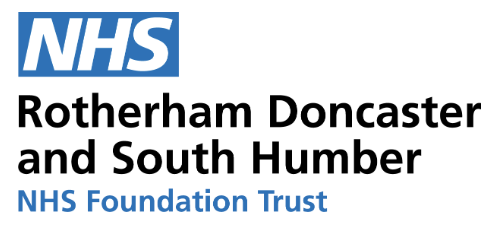Non Executive Director – Finance
Salary: £13,000
Working Hours: Circa 5 days per month (this represents attendance at meetings and preparation time)
Accountable To: The Chair
Predominant Place of Work: Trust Headquarters – Woodfield House, Tickhill Road Site, Doncaster
Role Summary:
Our new Finance Non-Executive Director (NED) will work with other Non-Executives, the Chair, Kathryn Lavery and the Executive Directors as critical member of the Board of Directors. They will also work in partnership with the Council of Governors who is also charged with holding the Non-Executive Directors to account for the performance of the Board of Directors.
Effective NHS boards demonstrate leadership by undertaking three key roles:
- Formulating strategy for the organisation
- Ensuring accountability by holding the organisation to account for the delivery of the strategy and through seeking assurance that systems of control are robust and reliable
- Shaping a positive culture for the board
Non-Executive Directors, as members of a unitary Board, share collective responsibility with all the Directors for the overall strategic direction and performance of the Trust.
Non-Executive Directors play a crucial role in bringing an independent perspective to the boardroom in addition to any specific knowledge and skills they may have; they also have a duty to uphold the highest standards of integrity and probity and to foster good relations in the boardroom. They should apply similar standards of care and skill in their role as a Non-Executive Director of an NHS Foundation Trust as they would in other similar roles elsewhere.
Non-Executive Directors are expected to participate fully as members of Committees of the Board to which they are appointed and to take the role of Committee Chair if so appointed by the Board. The successful candidate will be a member of the Finance, Performance and Informatics Committee and the Audit Committee.
Non-Executive Directors will meet at least once a year with the Senior Independent Director (SID) in the absence of the Chair to participate in the Chair’s appraisal and the setting of objectives for the Chair. In exceptional circumstances they may be asked to meet the SID to attempt to resolve issues concerning the Chair’s performance or to take action in that respect.
Responsibilities:
Strategic Direction
- Provide informed independent opinion and contribute to the formulation of a robust strategic plan for the Trust which ensures the necessary financial, human and other resources are in place for the Trust to meet its objectives and which takes account of the views of the Council of Governors.
- Assist board directors in providing entrepreneurial leadership to the Trust within a framework of prudent and effective controls which enable risk to be assessed and managed.
- Be aware of the various factors influencing adherence to the Licence from NHS Improvement and registration with the Care Quality Commission.
Monitoring / Assurance
- Scrutinising and monitor the performance of the organisation. Part of the responsibility is that Non- Executive Directors satisfy themselves as to the integrity of financial, clinical and other information and that financial and clinical quality controls and systems of risk management are robust.
Standards / Governance
- Commit to working to and encouraging within the Trust, the highest standards of probity, integrity and governance and contribute to ensuring that the Trust’s internal governance arrangements conform to best practice and statutory requirements.
- Assist board directors in setting the Trust’s values and standards and ensure its obligations to its stakeholders and the wider community are understood and fairly balanced at all times.
- Actively support and promote a positive organisational culture and reflect this in their own behaviour.
- Uphold the values of the Trust, to be an appropriate role model and to ensure that the Board promotes equality and diversity for all its patients, staff and other stakeholders.
Audit
- It is the duty of the whole Board of Directors to ensure that the Trust accounts properly to its members by presenting a true and fair reflection of its actions and financial performance and that the necessary internal control systems are put into place and monitored regularly and rigorously. Non-Executive Directors chair and serve on the Audit Committee.
Communication
- Engage positively and collaboratively in Board and Committee discussions.
- Ensure effective and constructive dialogue and productive relationships are promoted with the following bodies as relevant:
- Council of Governors (see below);
- all stakeholders in the Trust’s community;
- national healthcare stakeholders; and
- regulators such as NHS Improvement and the Care Quality Commission.
Relations with the Council of Governors
- Attend meetings of the Council of Governors with sufficient frequency to ensure that they understand the views of Governors on the key strategic and performance issues.
- Take into account the views of Governors and other members to gain a different perspective on the Foundation Trust and it’s performance.
- Be prepared to account to the Council of Governors for the progress made in delivering the Foundation Trust’s strategic objectives, the financial and operational performance of the Foundation Trust and for their own role in achieving this.
- An ambassador for the Trust in the engagement with all stakeholders including the local community and promote public understanding of the Trust’s values, objectives, policies and services and demonstrating knowledge and awareness of local issues.
Appointment of Executive Directors
Non-Executive Directors form the Remuneration Committee of the Board of Directors which appoints and sets the remuneration, allowances and other terms and conditions of office of the Executive and other senior staff.
Committees / other duties
Non-Executive Directors participate in and if required, chair other Committees established by the Board of Directors to exercise delegated responsibility. (The current Committees are: Finance, Performance and Informatics Committee; Quality Committee; People and Organisational Development Committee Audit Committee; Remuneration Committee; Charitable Funds Committee; Mental Health Legislation Committee; and Commissioning Committee).
Non-Executive Directors will sit on appeals in relation to staff disciplinary matters.
Candidates must be a member of RDaSH.
Becoming a member is simple: email rdash.ftmembershipoffice@nhs.net or join via https://secure.membra.co.uk/RDaSHApplicationForm/

